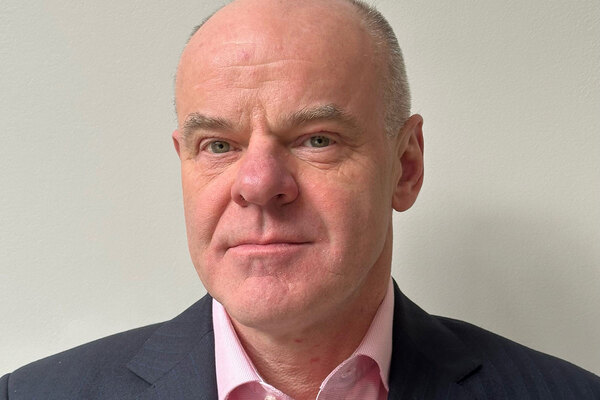Elephant in the room
Social housing providers must weigh up whether to invest in new housing or existing communities, says Heather Petch
The public debt pile was described recently as the elephant in the room in the current election campaign by Vince Cable, the Liberal Democrat shadow chancellor. Some might dispute this. It has actually had quite an airing - although clearly the fallout yet to come has been downplayed.
For Inside Housing readers, perhaps the biggest elephant in the room is housing. It was barely mentioned in the first ‘big’ TV debate between the three leaders. Gordon Brown did, however, announce his new deal for housing in Inside Housing - a continuing commitment to council house building and a deal with housing associations to become more efficient and utilise more of their own resources to deliver new stock in return for a guarantee of independence.
Learn from experience
Despite the economic situation, the problem of sustaining unfettered support for homeownership continues to be largely ignored. Until recently, it seemed that the social housing sector largely went along with this. So it was heartening that at a recent conference, many housing leaders pushed the case for ending the obsession with homeownership. Similarly, on the radio this morning while interviewing an estate agent who was talking up house prices an exasperated broadcaster asked: ‘Have we learned nothing from recent experience?’
House price inflation has exacerbated inequality and had a dramatic destabilising effect on the economy - the fiscal bias towards homeownership should end. But the parties’ respective manifestos fear to tread this territory. So, rather than leadership that makes the case for more rented housing options for different people with different needs and means, we’ll have more tinkering with the existing system.
Housing shortages are deemed a key reason for voters seeing migration as a priority issue in this election, even though mainstream parties would probably prefer migration to remain yet another elephant in a crowded room.
Last month, journalist Andrew Neill delivered a brilliant analysis of politics to a housing audience. But when he predicted that the British National Party would not win any national seats, he was challenged about the damage the party could do to community relations at a local level.
Undoubtedly, the far right have already pushed mainstream parties to be tougher in their commitments to curtail immigration and the rights of migrants. How they would ‘manage’ migration has become the ground on which the issue will be fought. The Conservatives, for example, have announced a cap of 150,000 migrants a year that even they know will be hard to implement.
Many businesses have become dependent on better skilled, more motivated labour from outside the UK, particularly eastern Europeans. Unable to claim benefits they are inevitably more willing to work for lower wages. If the economy needs the flow of migrants then real debate is needed about where new migrants will live and how they’ll get on with their neighbours - often in deprived areas where resources are tight.
Community tensions
Against the backdrop of a volatile economy and severe cuts in public expenditure, tensions within and between different communities are likely to increase. In this context, housing providers not only need to deliver as much new housing as they can, but also find ways of supporting individuals and communities to ride the storm. They also need to ensure that they make the best use of existing stock, which will still make up 80 per cent of our housing by 2050, including the private rented sector.
New build appeared, however, to be the focus of Gordon Brown’s ‘deal’ for housing. In reality there is going to be far less housing development than the sector geared up for three years ago. Around this time, a series of reports, most notably the Hills review, were also exposing the concentrations of poverty among existing tenants.
In response, most housing providers are committed to investing in people as well as bricks and mortar. They do this in a myriad of ways. But choices and efficiencies will be required here too. Arguably, the estimated housing association investment in communities of
£272 million could go much further and deeper if it developed and strengthened bottom-up community and voluntary sector interventions.
As part of our 50th anniversary celebrations, HACT recently re-launched as the Housing Action Charity supporting housing providers to work with local people and agencies to improve the well-being and living conditions of the poor and marginalised. Home Group and Impact Housing Association, for example, are working with HACT’s ‘age2age’ project with tenants and residents in Cumbria to build relationships between younger and older people. Breaking down fear and mistrust, reducing anti-social behaviour and broadening the horizons of young people is vital.
Forming partnerships
HACT has also resourced partnerships between communities in Bolton - an area which has experienced tensions. A Somali-led group called Bolton Solidarity Community Association is now working with Irwell Valley Housing Association and Bolton Community Homes to bring new Somali communities together with longer term white and Asian communities.
Some of these are initiatives which could never be delivered successfully by housing providers because they don’t have the trust and understanding of marginalised communities. Others are enhanced by a mutual approach which draws on the infrastructural resources of the housing provider and the reach, understanding of and trust within, communities. This kind of leadership is vital to opening up the horizons of introverted communities and to underpinning good community relations. It also provides stronger resilience in times which are going to be tough. It need not be expensive but it does need to be resourced.
Social housing providers will need to weigh up carefully how far they invest in new housing or in existing stock and communities. Perhaps facing up to this choice is the housing sector’s own elephant in the room.
Heather Petch is director of HACT








